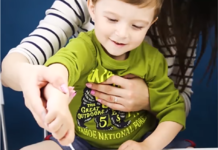
Conflict situations at school are an inevitable thing. Another thing is that by directing the situation in the right direction, you can benefit from everything. Learning to do this without the help of adults is unlikely to succeed.
Children's perception largely depends on the reaction of others to certain actions. If the children are lucky with the teacher in primary school, and conflicts are resolved exclusively by the destructive method, then the school period will be remembered with warmth and tenderness for many years.
Causes of conflicts between children at school
There can be many reasons for misunderstanding within the walls of a school. Even the inherent spirit of competition among schoolchildren can be seen as a provocation that stimulates action, knowledge, and the desire to become better. The teacher’s task is to ensure that the competition is healthy.
A conflict may arise in the following reasons:
- desire to become a leader;
- personal animosity;
- the struggle for recognition, resentment;
- unrequited feeling;
- dislike and arrogant condescension to anyone;
- the desire to be friends with someone against someone.
Sometimes at school, children of different classes conflict. And it also happens that classmates are divided into clans.
Pets or those students to whom teachers constantly make public remarks are often drawn into the situation. Children are cruel, they can love the strong no less than the weak.
How to avoid conflict
Not everything depends on the teacher, but much. It is on his shoulders to lay a burden of responsibility. Avoiding conflict between children at school and trying to smooth out the situation is the teacher’s sacred duty.
Even after a disrupted lesson, “debriefing can be different.” The first way is to look for the guilty among the students, possibly even with the involvement of the director and the class teacher. Guilty must be found, and fertile soil for a showdown between students in the future, too.
The constructive way looks different.
The situation is as follows. Upon learning of the teacher’s illness, high school students agree to take a walk outside the school grounds. Replacement is at the last moment, but the decision to skip is made and is not subject to appeal.
The only girl comes to the lesson, an excellent student. The reaction of the teacher is a unit in her diary and no “debriefing” after. Not pedagogical? Unlikely. Only a true child psychologist could do this.
It is difficult to imagine what scale the conflict between the remaining student and her classmates could achieve in a “debriefing”.
Causes of conflict
Whatever the causes of conflicts between children at school, it is the teacher who has to resolve many of them. Sometimes for this it is not necessary to even openly intervene in what is happening.
The teacher teaches not only literacy, he helps the child adapt in the team, learn to communicate in a civilized manner, argue, defend his point of view, concede, understand and accept mistakes, and be responsible for his actions.
Conflict Features
Conflicts between schoolchildren and classmates can have a slightly different nature. It is important to understand that any class is a collective. Sometimes a misunderstanding can arise between senior and younger students.
There can be many reasons up to the feeling of jealousy for the beloved teacher, who has taken on the education of other students.
What to do if the child has a conflict with the teacher
It is much more difficult if the student and teacher are the conflicting parties. The reasons for the conflict of the child with the teacher can be different, up to personal hostility.
Sometimes different methods of education make themselves felt in the walls of the school and in the family. Before taking sides, it is important to understand the situation. Sometimes parents do not know exactly how to determine that the child has a conflict with the teacher.
First, go to school and chat with the teacher. This is the only way to understand who is to blame and what is really happening. The outcomes can be different: from a complete resolution of the problem without involving outsiders to complaints to higher authorities and even transfer to another school.
Conflict Prevention - Avoiding Recommendations
You should always try to smooth out sharp corners and not provoke the occurrence of conflict situations.
If you do not want the child to withdraw into himself and harbor resentment against everyone and everything, you should never scold him in public, even if he is wrong. Listening to everyone is one thing, and depriving a child of support is another.
A one-on-one conversation with the teacher or collecting information about the teacher, his methods of education, and more, will not hurt. Peaceful way is always better.
What to do if a child conflicts at school - tips for parents
In the conflict of children in school, the actions of parents are different. It is always better to try to understand the situation first. In most cases, the truth is somewhere in between.
It is impossible to accept the peremptory side of the teacher or child. To make hasty conclusions is also not worth it.
Of course, with any complaints from the “beloved child”, you can make a showdown and immediately transfer the blood to another school, but no one can give guarantees that the new team will be able to adapt and not conflict.
Do not be afraid to communicate and express your opinion openly. This is the only way to find the true causes of what is happening and options for eliminating an unpleasant situation.


































